Have you been experiencing unexplained persistent itching, and redness on your skin? While it may seem like a temporary irritation, these symptoms could be indicators of underlying skin conditions—or even a sign of a larger health issue.In this article, we’ll explore the most common causes of sweating, itching, and redness, how to identify them, and what you can do to find relief. Let’s dive into the facts your skin wants you to know.Common Causes of Itching and Redness
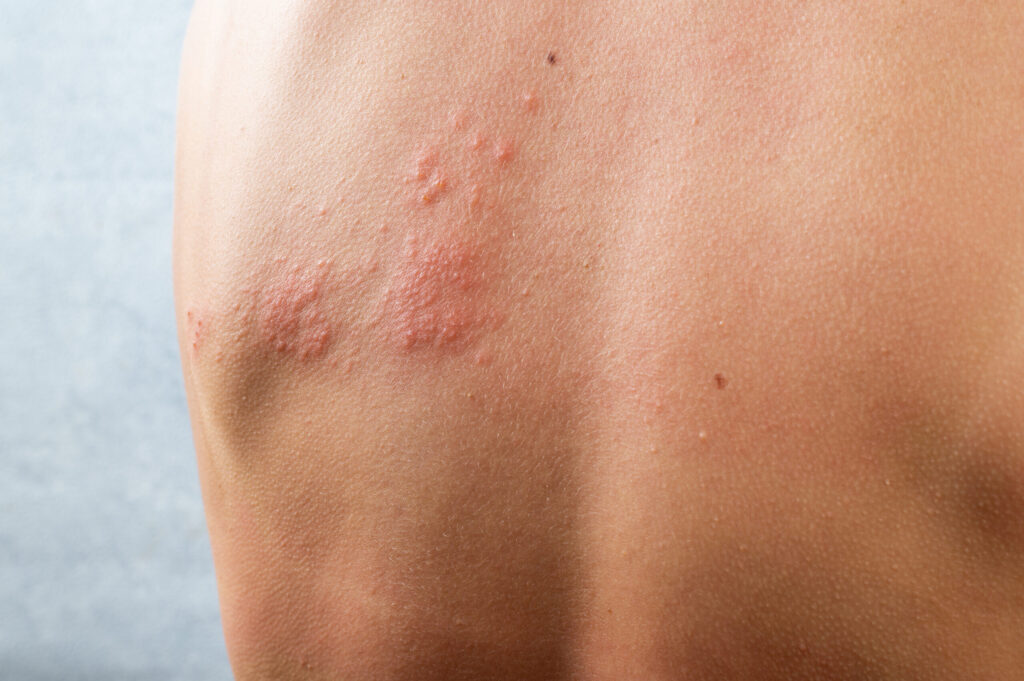
1. Contact Dermatitis: A Reaction to Your EnvironmentContact dermatitis occurs when your skin reacts to something it touches. It’s a common form of eczema caused by either an allergic reaction (allergic contact dermatitis) or direct irritation (irritant contact dermatitis).Typical triggers include:Soaps and detergentsPerfumes or cosmeticsJewelry (especially nickel)Latex or rubberCertain fabrics or dyesSymptoms: Red, inflamed skinItching and burningBlisters or dry patchesOften limited to the area of contactWhat to do: Avoid the trigger, apply fragrance-free moisturizers, and consider using over-the-counter topical corticosteroids under the guidance of a pharmacist or physician. Severe or recurring cases should be evaluated by a dermatologist.
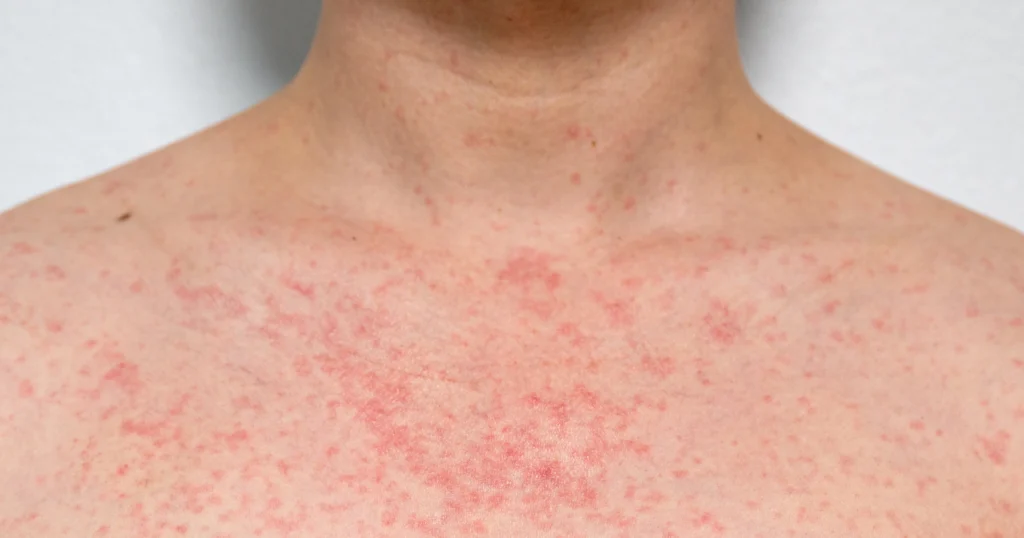
2. Heat Rash (Miliaria): When Sweat Gets TrappedHeat rash, or miliaria, develops when sweat ducts become blocked, trapping sweat beneath the skin. This condition is especially common in hot, humid climates and after physical activity.Common signs include:Small red or clear bumpsA prickling or stinging sensationItchy skin, especially under clothing or in skin foldsMost often appears on the chest, back, neck, or armpitsWhat to do: Keep the affected area cool and dry, wear loose clothing, and avoid overheating. The condition usually clears up on its own within a few days.
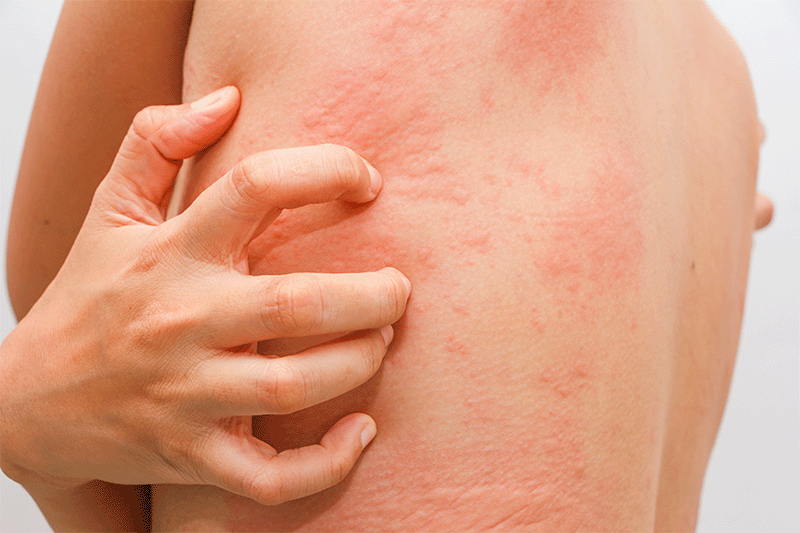
3. Allergic Reactions: When Your Immune System OverreactsAllergic skin reactions can occur due to food, insect bites, medications, or environmental allergens like pollen, dust mites, or pet dander.Signs to watch for:Hives (raised, itchy welts)Red patches or blotchy skinSwellingIn severe cases, difficulty breathing or swallowing (requires emergency care)What to do: Antihistamines may relieve mild symptoms, but if the reaction involves swelling of the lips, tongue, or airways, seek immediate medical attention. Identifying and avoiding the allergen is key to long-term control.
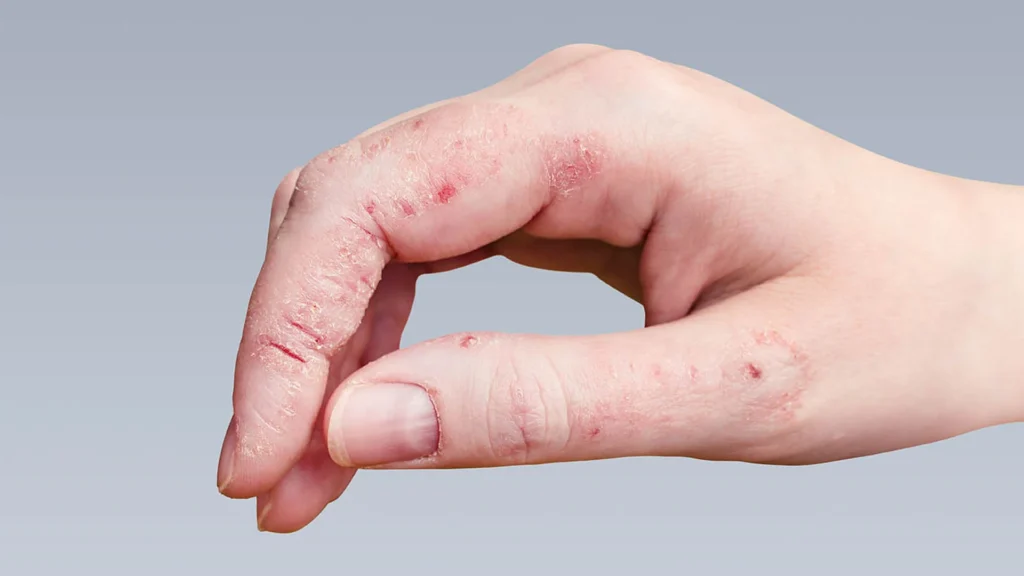
4. Fungal Infections: When Moisture Breeds TroubleFungal infections such as ringworm (tinea), athlete’s foot, and yeast infections thrive in warm, moist environments. These are common in people who sweat heavily or wear tight, non-breathable clothing.Symptoms may include:Itchy, red, circular patches with raised edgesPeeling or cracked skinBurning or stinging sensationOften appears on feet, groin, or underarmsWhat to do: Keep skin dry and clean, use antifungal creams or powders, and avoid sharing personal items. Persistent or severe infections may require prescription treatment.
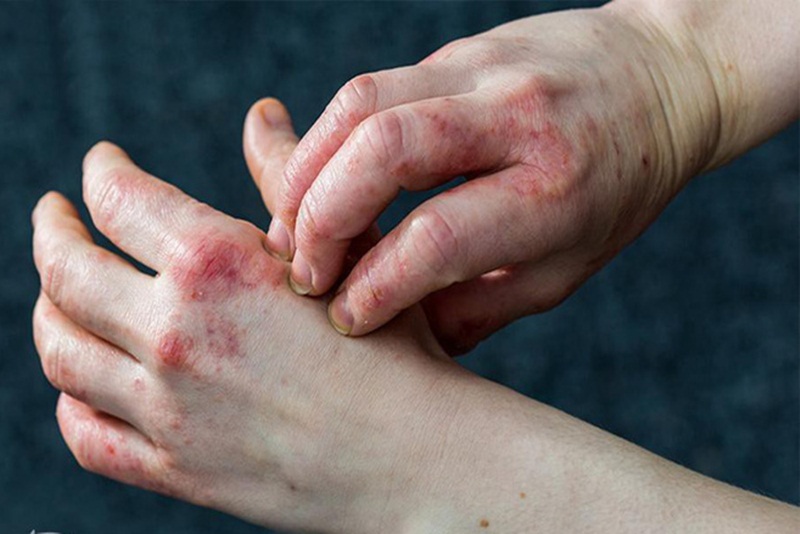
5. Hyperhidrosis: When Sweating Becomes ExcessiveHyperhidrosis is a condition characterized by excessive sweating beyond what is needed for temperature regulation. It can affect specific areas (such as hands, feet, or armpits) or be more generalized.Common symptoms:Persistent sweating, even in cool environmentsSkin irritation or breakdown due to constant moistureIncreased risk of fungal or bacterial skin infectionsMay cause emotional or social distressWhat to do: Clinical-strength antiperspirants, oral medications, Botox injections, and even surgical options are available depending on severity. A dermatologist can guide you to the best solution.

6. Eczema (Atopic Dermatitis): Chronic Inflammation of the SkinEczema is a long-term condition that causes inflamed, itchy, and dry skin. It may flare up periodically and is often associated with asthma or hay fever.Symptoms include:Red, dry, scaly patchesItching that can become intenseSkin thickening or cracking from scratchingOften affects the elbows, knees, face, or neckWhat to do: Moisturize regularly with emollient creams, avoid known triggers (like allergens or stress), and use prescribed topical treatments when needed. Eczema is not contagious but may require long-term management.
7. Psoriasis: When Skin Cells Multiply Too FastPsoriasis is an autoimmune skin disease where the immune system speeds up the life cycle of skin cells, causing them to build up rapidly on the surface.Symptoms to look for:Thick, red patches covered with silvery-white scalesItching or burning in affected areasCommonly appears on the scalp, elbows, knees, and lower backWhat to do: Treatments include topical creams, phototherapy, and immune-modulating medications. Psoriasis is not curable but can be controlled with proper care.When to See a DoctorWhile occasional itching and redness can result from minor irritation, recurring or severe symptoms should not be ignored. Seek medical advice if you experience:Symptoms lasting more than a weekIntense or spreading rednessOpen sores or signs of infection (pus, swelling, or fever)Disruption of sleep or daily activities due to itchingUnknown triggers or persistent flare-upsA dermatologist can help diagnose the underlying issue through skin tests, biopsies, or bloodwork if needed.Tips for Managing Symptoms at HomeStay cool: Use fans or air conditioning and avoid tight clothing.Moisturize daily: Choose fragrance-free, hypoallergenic lotions or creams.Avoid irritants: Be mindful of soaps, detergents, and perfumes.Practice good hygiene: Shower after sweating and wear breathable fabrics.Track your symptoms: Keeping a diary of foods, environments, and products may help identify triggers.ConclusionSweating, itching, and redness may seem like minor nuisances, but they can point to larger issues beneath the surface of your skin. From allergic reactions to chronic skin conditions, understanding the potential causes allows you to take control of your health and seek appropriate care.Always listen to your body—and when in doubt, consult a professional.SourcesAmerican Academy of Dermatology – Contact DermatitisCDC – Heat-Related IllnessesNational Eczema Association – Atopic DermatitisMayo Clinic – PsoriasisCleveland Clinic – HyperhidrosisWebMD – Skin Allergy Overview


